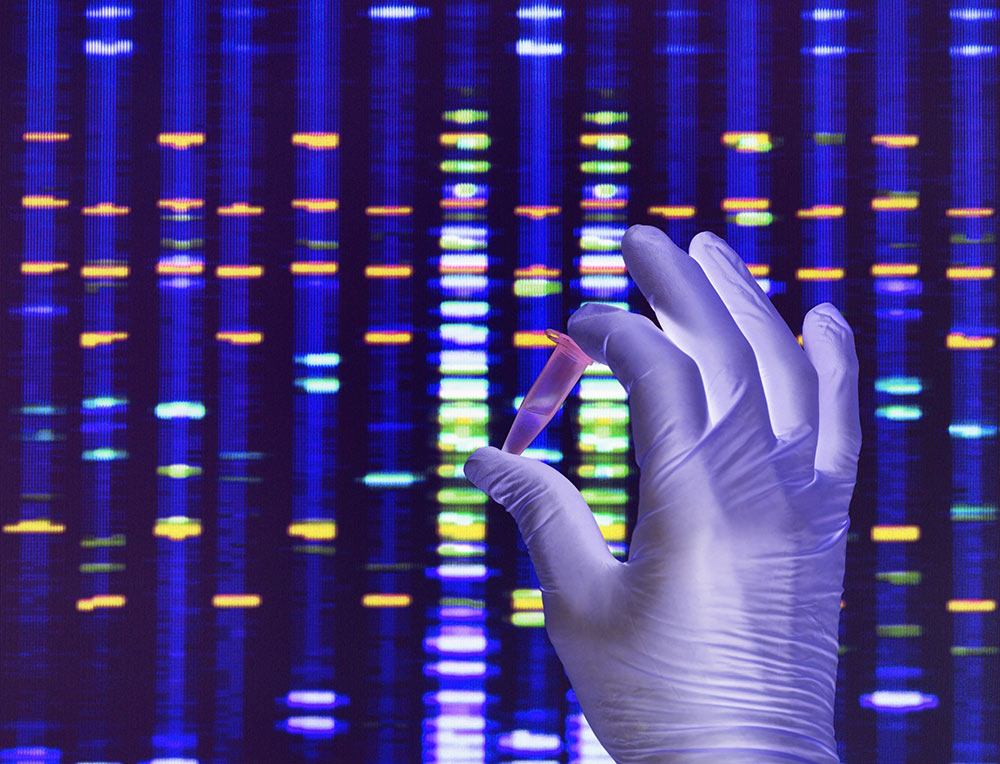
今天,人类医学正在经历一个世纪以来最根本性的转变,其重要性可以与抗生素的时代相媲美。使用与人类、肿瘤、病毒等有关的遗传信息,能够提高医疗的精确度,让我们有能力从过去的试错法跳跃到新型医疗,利用分子信息为所有人提供更有效、更精准的医疗。
新冠疫情和令人震惊的疫苗研发速度证明了新时代医疗的无限可能。还有最近癌症治疗方面的改进。据IQVIA人类数据科学研究所(IQVIA Institute)表示,目前正在开发的超过90%的癌症治疗方法在某种程度上都是以分子遗传信息作为方向。我们的技术正在快速打破基于症状的试错医学的局限,我们所爱的人也将因此拥有更长的寿命。
但基于遗传学的医疗应用速度过于缓慢。这些问题在癌症治疗领域最为明显。我们知道,早发现、早治疗可以提高癌症患者的存活率,但临床治疗准则和保险报销却偏向于晚期检测和治疗。比如结肠癌的发病率不断升高,尤其是在年轻人当中。接近六分之一结肠癌患者有遗传基因变异,导致其患结肠癌或其他癌症的风险升高。但目前的检测准则和实践仅对病情最严重的患者以及存在癌症家族遗传史的家庭进行基因检测。
如果将通过基因检测确定高癌症风险作为日常护理的标准,我们就能够根据每个人患癌症的风险提供预防和监控,对癌症患者也可以尽早进行干预治疗。所以为什么不通过常规基因检测来提高治疗效果呢?
不客气地说,识别某种疾病患病风险较高的无症状人群,然后执行谨慎(且划算的)筛查策略帮助他们保持健康,在这个过程中没有人从中获得报酬。我们的医疗体系注重的是对患者患病之后的治疗,这些疾病通常存在多年没有被检出,也没有引起怀疑。监管障碍和彻底崩溃的定价市场造成的意外后果,仍然在推动美国的智慧资本向高成本的(且有利可图的)重病患者诊断和治疗倾斜;但医疗系统对改善人类身体健康却缺乏动力。很可惜,美国的医疗保健支付方似乎已经被这种方式束缚了手脚。进步的保险公司尝试开展试点项目,雇主偶尔也会尽量鼓励员工预防疾病以降低成本,但系统性变化依旧没有出现。
有趣的是,一些最重要的创新反而是来自医疗行业以外的领域。我们看到人寿保险公司开始提供分子检测,用于确定癌症风险、治疗和监控,并且已经初步产生回报。当人们注重保护自身健康的时候,他们就可以延长寿命,也就能够更长时间地作为保险公司的客户。
医疗保健行业不应该也不可以放弃其采用预防性医疗的道义责任。医疗保健系统应该为在常规预防性医疗中使用健康信息创造更多的便利,但首先要确保健康信息能够作为付费项目。医疗保健一直是一个相当孤立的领域,但我们应该将其视为一个可以由医疗保险支付方和医疗保健系统合作创建的平台。
首先是降低诊断和分子检测的费用,并允许患者和临床医师获取检测信息和健康数据。在新冠疫情初期,我们见证了缺少检测和信息基础设施的后果。除了传染病以外,我们对基因检测同样有很高的需求,只是这种需求并不明显。医疗保健支付方应该发挥关键作用,重新考虑报销预防性医疗的费用,而医疗保健行业必须用可靠的、能够扩大规模的基因检测来满足需求。
基于检测和信息基础设施可以开展行业合作,增加基因检测的应用。如果你有一种针对癌症的靶向疗法,它必须对这种生物标记物进行测试之后才能够上市。但我们可以不断增加可用基因组信息,直到基因检测变成一种常规,足以形成良性循环:我们掌握的个人遗传信息越多,生物科技和制药行业的创新者就有越多的靶点能够开发新治疗方法,反过来可以刺激基因检测的发展,让更多的人能够从靶向治疗中受益。我们可以以此为基础建立科学知识库,确定在所有健康问题上对不同人群有效的治疗方案。
毫无疑问,这一切说起来容易做起来难。但此次新冠疫情危机给我们带来的一点启示就是,当各方齐心协力合作解决医疗问题时,就能够实现快速创新。面对紧急的疫情和新的传染病,我们不能坐以待毙。我们需要吸取过去一年半的教训,将它们扩展到新冠疫情以外的其他方面,让全世界数十亿人过上更健康的生活。(财富中文网)
本文作者肖恩·乔治是Invitae公司的联合创始人及首席执行官。
翻译:刘进龙
审校:汪皓
今天,人类医学正在经历一个世纪以来最根本性的转变,其重要性可以与抗生素的时代相媲美。使用与人类、肿瘤、病毒等有关的遗传信息,能够提高医疗的精确度,让我们有能力从过去的试错法跳跃到新型医疗,利用分子信息为所有人提供更有效、更精准的医疗。
新冠疫情和令人震惊的疫苗研发速度证明了新时代医疗的无限可能。还有最近癌症治疗方面的改进。据IQVIA人类数据科学研究所(IQVIA Institute)表示,目前正在开发的超过90%的癌症治疗方法在某种程度上都是以分子遗传信息作为方向。我们的技术正在快速打破基于症状的试错医学的局限,我们所爱的人也将因此拥有更长的寿命。
但基于遗传学的医疗应用速度过于缓慢。这些问题在癌症治疗领域最为明显。我们知道,早发现、早治疗可以提高癌症患者的存活率,但临床治疗准则和保险报销却偏向于晚期检测和治疗。比如结肠癌的发病率不断升高,尤其是在年轻人当中。接近六分之一结肠癌患者有遗传基因变异,导致其患结肠癌或其他癌症的风险升高。但目前的检测准则和实践仅对病情最严重的患者以及存在癌症家族遗传史的家庭进行基因检测。
如果将通过基因检测确定高癌症风险作为日常护理的标准,我们就能够根据每个人患癌症的风险提供预防和监控,对癌症患者也可以尽早进行干预治疗。所以为什么不通过常规基因检测来提高治疗效果呢?
不客气地说,识别某种疾病患病风险较高的无症状人群,然后执行谨慎(且划算的)筛查策略帮助他们保持健康,在这个过程中没有人从中获得报酬。我们的医疗体系注重的是对患者患病之后的治疗,这些疾病通常存在多年没有被检出,也没有引起怀疑。监管障碍和彻底崩溃的定价市场造成的意外后果,仍然在推动美国的智慧资本向高成本的(且有利可图的)重病患者诊断和治疗倾斜;但医疗系统对改善人类身体健康却缺乏动力。很可惜,美国的医疗保健支付方似乎已经被这种方式束缚了手脚。进步的保险公司尝试开展试点项目,雇主偶尔也会尽量鼓励员工预防疾病以降低成本,但系统性变化依旧没有出现。
有趣的是,一些最重要的创新反而是来自医疗行业以外的领域。我们看到人寿保险公司开始提供分子检测,用于确定癌症风险、治疗和监控,并且已经初步产生回报。当人们注重保护自身健康的时候,他们就可以延长寿命,也就能够更长时间地作为保险公司的客户。
医疗保健行业不应该也不可以放弃其采用预防性医疗的道义责任。医疗保健系统应该为在常规预防性医疗中使用健康信息创造更多的便利,但首先要确保健康信息能够作为付费项目。医疗保健一直是一个相当孤立的领域,但我们应该将其视为一个可以由医疗保险支付方和医疗保健系统合作创建的平台。
首先是降低诊断和分子检测的费用,并允许患者和临床医师获取检测信息和健康数据。在新冠疫情初期,我们见证了缺少检测和信息基础设施的后果。除了传染病以外,我们对基因检测同样有很高的需求,只是这种需求并不明显。医疗保健支付方应该发挥关键作用,重新考虑报销预防性医疗的费用,而医疗保健行业必须用可靠的、能够扩大规模的基因检测来满足需求。
基于检测和信息基础设施可以开展行业合作,增加基因检测的应用。如果你有一种针对癌症的靶向疗法,它必须对这种生物标记物进行测试之后才能够上市。但我们可以不断增加可用基因组信息,直到基因检测变成一种常规,足以形成良性循环:我们掌握的个人遗传信息越多,生物科技和制药行业的创新者就有越多的靶点能够开发新治疗方法,反过来可以刺激基因检测的发展,让更多的人能够从靶向治疗中受益。我们可以以此为基础建立科学知识库,确定在所有健康问题上对不同人群有效的治疗方案。
毫无疑问,这一切说起来容易做起来难。但此次新冠疫情危机给我们带来的一点启示就是,当各方齐心协力合作解决医疗问题时,就能够实现快速创新。面对紧急的疫情和新的传染病,我们不能坐以待毙。我们需要吸取过去一年半的教训,将它们扩展到新冠疫情以外的其他方面,让全世界数十亿人过上更健康的生活。(财富中文网)
本文作者肖恩·乔治是Invitae公司的联合创始人及首席执行官。
翻译:刘进龙
审校:汪皓
Today we’re in the midst of the most fundamental shift in medicine in a century, on par with the era of antibiotics. The use of genetic information—about people, about tumors, about viruses—is taking the guesswork out of medicine, giving us the power to leapfrog the trial-and-error of the past to a new model of medicine that leverages molecular information to deliver better, more precise health for each of us.
The COVID-19 pandemic and the astonishing speed with which vaccines were developed have shown what’s possible in this new era of medicine. So too have recent improvements in cancer care. More than 90% of the therapies in development for cancer are in some way directed by molecular genetic information, according to the IQVIA Institute. Our technology is rapidly escaping the limitations of symptom-based, trial-and-error medicine, and our loved ones are surviving longer as a result.
Yet the pace of embracing genetics-based health care has been excruciatingly slow. Nowhere are these shortcomings more evident than in cancer care. We know that cancer survival increases with early detection and treatment, and yet clinical care guidelines and reimbursement favor late-stage detection and treatment. A case in point is colorectal cancer, which has been on the rise, particularly at younger ages. Nearly one in six colorectal cancer patients has inherited gene variants that increased his or her risk of cancer, not just for colorectal cancer but for other cancers as well. And yet current testing guidelines and practice focus on genetic testing only for the sickest patients and for families with an obvious familial pattern of inherited cancer.
If genetic testing for elevated cancer risk were a standard part of everyday care, we could fashion appropriate prevention and surveillance matched to each individual’s risk for cancer, as well as intervene earlier if cancer develops. So why don’t we routinely test patients in order to better manage care?
Not to put too fine a point on it, but no one gets paid for identifying asymptomatic people who are at high risk for a disease and then implementing prudent (and cost-effective) screening strategies to help them thrive. Our system pays to treat patients after disease has run undetected and unchallenged, often for years. The unintended consequences of a patchwork of regulatory barriers combined with a completely broken pricing market continues to ratchet our country’s intellectual capital toward the costly (and lucrative) game of diagnosing and treating the sickest patients; there are few incentives for making people healthier. Sadly, U.S. payers seem trapped in this approach. Progressive insurers try pilot programs, employers occasionally try to incentivize prevention to bring down costs, but systemic change remains elusive.
Interestingly, some of the biggest innovations are coming from outside health care. We’re beginning to see life insurance companies provide molecular testing to determine risk for cancer, therapy, and monitoring, and they are witnessing early returns. People live longer—and remain customers longer—when they are protecting their health.
The health care sector of our economy should not and cannot abandon its moral imperative to adopt preventive medicine. Systems need to make it easier for health information to be incorporated into routine preventive care, and that begins by making sure it gets paid for. Health care is traditionally quite siloed, but we need to be thinking of it as a platform, one that payers and health care systems can collaborate to create.
The collaboration starts with making diagnostic and molecular tests affordable and the resulting information and health data accessible to patients and clinicians. Through the early days of the pandemic, we witnessed what happens when testing and information infrastructure is missing. The need is just as great outside infectious disease, it’s just not as visible. Payers have a vital role in rethinking reimbursement for preventive medicine, and industry must meet the need with reliable, scalable testing.
Industry partnerships can then be layered on that testing and informatics infrastructure to increase utilization. If you have a targeted therapy for cancer, you can’t bring it forward unless you have the testing for that biomarker. But we can keep expanding the menu of genomic information available until it becomes routine enough that genetics becomes a virtuous cycle: The more individual genetic information we have, the more targets the innovators in the biotech and pharmaceutical industries will have to drive the development of new therapies, which in turn spurs more genetic testing to find more individuals who could benefit from such targeted treatment. This allows us to build a scientific knowledge base of what works for whom, across all of health.
This is all, without a doubt, easier to describe than achieve. But if the pandemic crisis has shown us anything, it is the rapid innovation that results when all the parties involved in health care collaborate to solve a problem. A pandemic emergency and emerging infectious diseases are not situations we can afford to wait for. We need to take the lessons we’ve learned over the past year and a half and extrapolate them beyond COVID to deliver a lifetime of better health for billions of people around the globe.
Sean George is the cofounder and CEO of Invitae.






